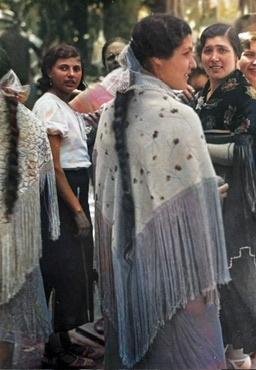What role does the desire for cultural autonomy play in modern Mallorcan society?
Similar Topics
cultural autonomy
mallorcan society
identity
governance
statute of autonomy
cultural heritage
mallorcan language
local politics
sustainable practices
economic activity
In modern Mallorcan society, the desire for cultural autonomy plays a significant role in shaping identity, governance, and social dynamics. After gaining greater autonomy in 1983 with the establishment of the Balearic Islands' Statute of Autonomy, Mallorca has seen a resurgence in the promotion of its unique cultural heritage, including language, traditions, and local customs. The Mallorcan language (Catalan) is a cornerstone of this cultural identity and is actively promoted in education, media, and public life, reinforcing the island’s distinctiveness from the mainland.
The push for cultural autonomy is also reflected in local politics, where regional parties often advocate for preserving Mallorcan interests amid pressures from tourism and globalization. There is a growing movement among residents to assert locality over the economic imperatives of mass tourism, calling for sustainable practices that respect the island's environment and heritage. This desire for cultural autonomy can also lead to tensions, particularly regarding the impact of external influences and property developments on traditional ways of life.
Furthermore, cultural events, festivals, and local crafts are emphasized to foster a sense of pride among residents and to attract culturally-conscious visitors. Overall, the quest for cultural autonomy in Mallorca underscores a broader movement aimed at safeguarding its identity, promoting social cohesion, and ensuring that the benefits of its economic activity contribute to the community’s well-being.
The push for cultural autonomy is also reflected in local politics, where regional parties often advocate for preserving Mallorcan interests amid pressures from tourism and globalization. There is a growing movement among residents to assert locality over the economic imperatives of mass tourism, calling for sustainable practices that respect the island's environment and heritage. This desire for cultural autonomy can also lead to tensions, particularly regarding the impact of external influences and property developments on traditional ways of life.
Furthermore, cultural events, festivals, and local crafts are emphasized to foster a sense of pride among residents and to attract culturally-conscious visitors. Overall, the quest for cultural autonomy in Mallorca underscores a broader movement aimed at safeguarding its identity, promoting social cohesion, and ensuring that the benefits of its economic activity contribute to the community’s well-being.
🧩 Related Questions
Related Question
What challenges do almond farmers face in Mallorca related to water management during dry spells?
Related Question
What types of traditional Mallorcan products are demonstrated or produced at Els Calderers?
Related Question
How do the agricultural cooperatives in Mallorca help in promoting organic farming?
